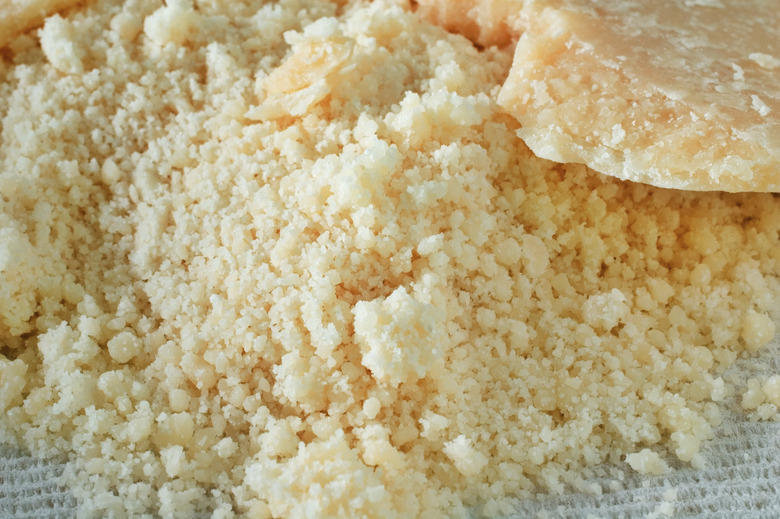Judge Dismisses Nearly 50 Lawsuits About Wood Pulp In Parmesan
The phrase "100 percent grated Parmesan cheese" on many product labels is a crafty play on words — while the cheese is 100 percent grated, it's definitely not 100 percent cheese.
Last February, consumers were up in arms about the fibrous additives in their unrefrigerated Parmesan. They'd been sprinkling wood pulp over their pasta — and many began filing lawsuits about it.
Nearly 50 complaints were filed near Chicago, which were clumped into a multi-district piece of litigation containing the fury of a large region's consumers. U.S. District Judge Gary Feinerman, a federal judge in Chicago, has just dismissed all of them. On August 24, Feinerman told the plaintiffs that consumers should be reading labels before purchasing packaged food.
Arguably, consumers had read the label — one that promised "100 percent parmesan cheese". Feinerman, however, thought this seemingly straightforward label was more nuanced. "It also might be an assertion that 100 percent of the cheese is parmesan cheese, or that the parmesan cheese is 100 percent grated," he asserted in his memorandum.
"Reasonable consumers are well aware that pure dairy products spoil, grow blue, green, or black fuzz, or otherwise become inedible if left unrefrigerated for an extended period of time," he went on to explain, defending the use of wood pulp as a way to keep what little cheese is actually in these products fresh.
According to the Food and Drug Administration's regulations on parmesan, "each of the ingredients used in the food shall be declared on the label as required," and the companies in question do list cellulose as an ingredient on the label. The percentage of the product that's made of anything other than cheese, however, is omitted.
Kraft Heinz, Walmart, and Target were some of the most egregious offenders with regard to additives according to an investigation by Bloomberg in 2016, with Target's brand of grated cheese containing shockingly few kernels of actual parmesan. In fact, in the case of both Target's Market Pantry brand and the Always Save brand distributed to many other grocers, the FDA found that "no parmesan was used to manufacture" their parmesan product. (Instead, the product contained a mixture of other cheeses along with the cellulose additive.)
However, few changes ever came of the upset. Parmesan continues to contain wood pulp rather than one hundred percent real cheese. And now, with this judge's ruling, it seems this foolhardy labeling will continue.
